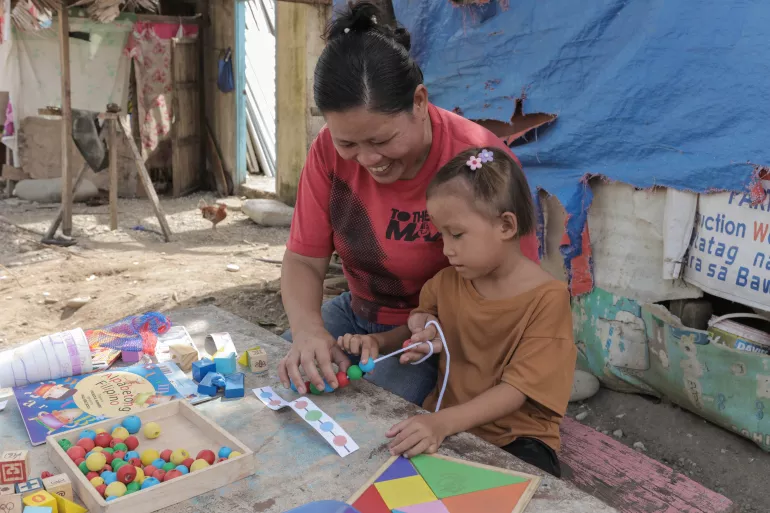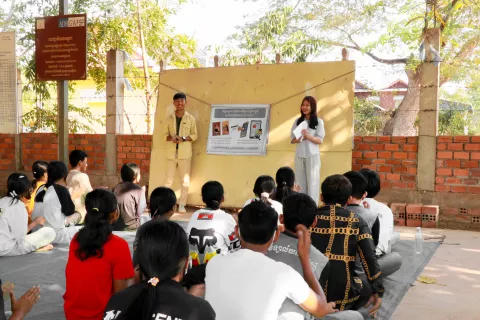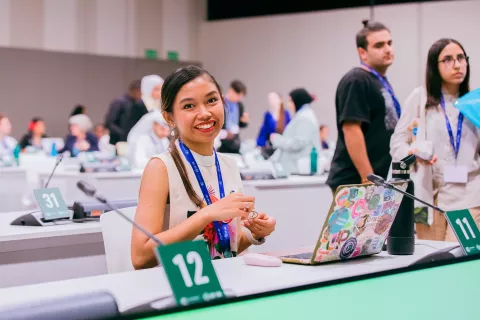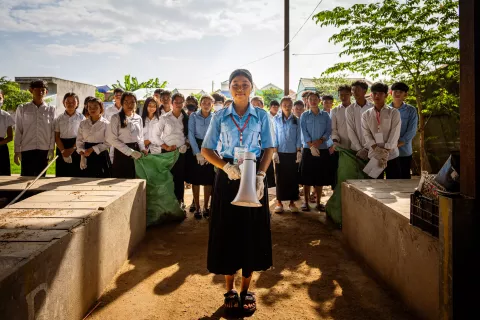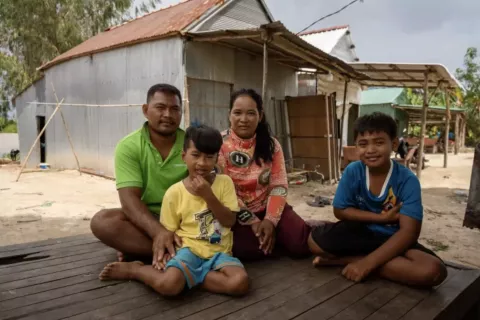As a parent living in Bangkok, nothing is more important to me than my children's safety and well-being. But with the increasing frequency and severity of climate-related disasters in East Asia and the Pacific, I'm deeply concerned for the future of our children. Climate change isn't some far-off threat—it's already impacting our children's lives in devastating ways. Extreme weather events, food and water shortages, air pollution, and other challenges are just the tip of the iceberg. Climate change can have long-lasting effects on our children's physical, mental, and emotional health, robbing them of the bright future they deserve. Moreover, non-climate crises like conflict can also significantly impact our children's lives. As a community, we need to come together to foster preparedness, resilience, and sustainable practices to mitigate these impacts.
The COVID-19 pandemic has further underscored the importance of readiness in the face of unforeseen crises and challenges. By providing children with access to healthcare, nutrition, and education, we can equip them with the necessary tools and resources to withstand and prosper in the face of health threats, conflicts, and climate-related challenges. It is heartbreaking to recognize that our youngest ones are the most vulnerable and that if we fail to act, they will remain the most vulnerable for longer periods, bearing the consequences of our inaction. Thus, we must take action as a community to protect our children's safety and future.
And here is the good news: young children are also the most valuable agents of change! Their impressionable minds are still in the process of forming their values, beliefs, and habits, making them ideal and promising individuals to shape a better, more sustainable future for all of us.
I know from my own experience as a parent, that by introducing my children to sustainable practices at an early age at home and school, I have been able to shape their values and instill a sense of responsibility towards the environment. For example, by teaching my children the importance of recycling, turning off the lights when leaving a room, or reducing water usage, I have been able to instill lifelong habits that will have a positive impact on the environment. I also see this happening more and more around us, which is very encouraging. There is no doubt about it: young children’s enthusiasm and willingness to learn also make them the greatest ambassadors for change, as they can also inspire their peers and families to adopt sustainable behaviors. So, let's empower our little ones to be the change-makers we need and help them create a brighter tomorrow!
UNICEF recognizes the urgency of taking action to save our planet, and the immense potential that children and young people have as change agents.
Despite limited resources, UNICEF and its partners provide opportunities for children to play and learn such as Early Childhood Development kits to children and families affected by disasters. Such initiative contributes to ensuring that children have access to education and other essential services, even during times of crisis.
In the Philippines, UNICEF is helping vulnerable children, at risk of development delays, to smoothly transition to kindergarten with ‘learn-at-home’ kits, developed to support children during the COVID-19 2-year closures of ECD centres, so that parents and caregivers can better support their children.
But we need to do more. We can create a more resilient and sustainable future for our children and generations to come, starting with the most vulnerable, including those living with disabilities, by investing in research, policies, and innovative programmes that focus on early childhood development and climate change in a more systematic way.
Allocating resources towards the survival and development of young children between 0 to 8 years of age and supporting parents and caregivers especially those most vulnerable to disasters and environmental crises is a smart investment that our societies can make to protect our planet and our children’s future. UNICEF and its partners are working to create a climate-resilient and sustainable future for every child.
Let’s come together as a global community to protect our children’s future and the planet they will inherit. We owe it to them to act now, before it’s too late!


